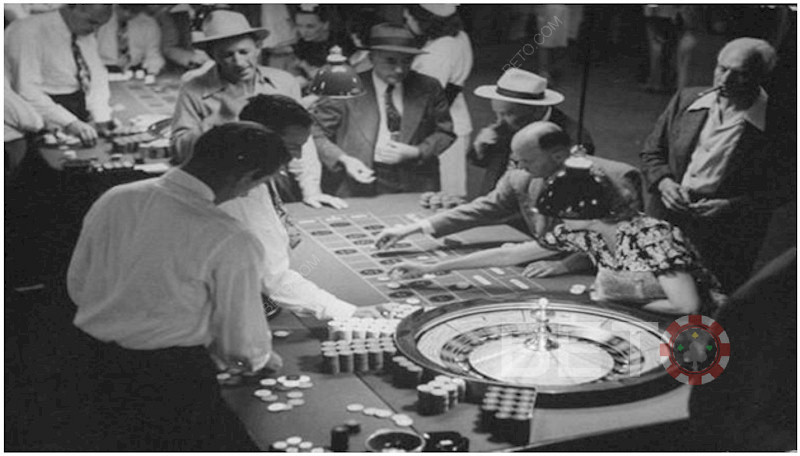Quote from
jeruweb3 on October 29, 2023, 2:54 pm
If you've ever spun the roulette wheel and felt the thrill of anticipation, you might be curious about the fascinating history of this iconic game. Roulette, which means "little wheel" in French, has a storied past that dates back centuries. In this post, we'll take a journey through time to explore the origins and evolution of roulette.

Early Origins: The origins of roulette can be traced back to 17th-century France, where the game was first introduced. Blaise Pascal, a French mathematician and inventor, is often credited with the creation of an early form of the roulette wheel. However, the game as we know it today is believed to have evolved from various gaming devices popular in Europe during the 17th and 18th centuries.
The Birth of the Modern Roulette Wheel: In the early 19th century, Francois and Louis Blanc, two French brothers, introduced the modern roulette wheel by removing the double zero (00) pocket from the game. This change reduced the house edge and improved the odds for players, leading to the popularization of the single-zero European roulette wheel.
Roulette in America: Roulette made its way to the United States in the 19th century, and American casinos added their own twist to the game. The addition of the double-zero (00) pocket in American roulette increased the house edge, making it distinct from the European version. To this day, you'll find both European and American roulette being played in casinos worldwide.
The Monte Carlo Connection: Monte Carlo, a renowned gambling destination in Monaco, played a pivotal role in roulette's history. In the mid-19th century, Prince Charles III of Monaco introduced legalized gambling to save his country from financial ruin. The single-zero European roulette wheel became the game of choice in Monte Carlo casinos, solidifying its status as the standard version of the game.
Online Roulette: With the rise of the internet in the late 20th century, roulette made its way to the digital realm. Online roulette brought the game to a global audience, enabling players to enjoy it from the comfort of their homes. The virtual versions faithfully replicate the excitement and mechanics of traditional roulette.
Conclusion: The history of roulette is a testament to its enduring popularity and evolution over the centuries. What started as a simple gaming device has become a global casino sensation, with various regional adaptations and the move to online platforms. Whether you prefer the classic elegance of European roulette or the fast-paced action of American roulette, the game's history is an integral part of its charm. So, the next time you place your bets on that spinning wheel, remember the rich history that accompanies this iconic casino game.
To Play Roulette games Check here
If you've ever spun the roulette wheel and felt the thrill of anticipation, you might be curious about the fascinating history of this iconic game. Roulette, which means "little wheel" in French, has a storied past that dates back centuries. In this post, we'll take a journey through time to explore the origins and evolution of roulette.

Early Origins: The origins of roulette can be traced back to 17th-century France, where the game was first introduced. Blaise Pascal, a French mathematician and inventor, is often credited with the creation of an early form of the roulette wheel. However, the game as we know it today is believed to have evolved from various gaming devices popular in Europe during the 17th and 18th centuries.
The Birth of the Modern Roulette Wheel: In the early 19th century, Francois and Louis Blanc, two French brothers, introduced the modern roulette wheel by removing the double zero (00) pocket from the game. This change reduced the house edge and improved the odds for players, leading to the popularization of the single-zero European roulette wheel.
Roulette in America: Roulette made its way to the United States in the 19th century, and American casinos added their own twist to the game. The addition of the double-zero (00) pocket in American roulette increased the house edge, making it distinct from the European version. To this day, you'll find both European and American roulette being played in casinos worldwide.
The Monte Carlo Connection: Monte Carlo, a renowned gambling destination in Monaco, played a pivotal role in roulette's history. In the mid-19th century, Prince Charles III of Monaco introduced legalized gambling to save his country from financial ruin. The single-zero European roulette wheel became the game of choice in Monte Carlo casinos, solidifying its status as the standard version of the game.
Online Roulette: With the rise of the internet in the late 20th century, roulette made its way to the digital realm. Online roulette brought the game to a global audience, enabling players to enjoy it from the comfort of their homes. The virtual versions faithfully replicate the excitement and mechanics of traditional roulette.
Conclusion: The history of roulette is a testament to its enduring popularity and evolution over the centuries. What started as a simple gaming device has become a global casino sensation, with various regional adaptations and the move to online platforms. Whether you prefer the classic elegance of European roulette or the fast-paced action of American roulette, the game's history is an integral part of its charm. So, the next time you place your bets on that spinning wheel, remember the rich history that accompanies this iconic casino game.
To Play Roulette games Check here









